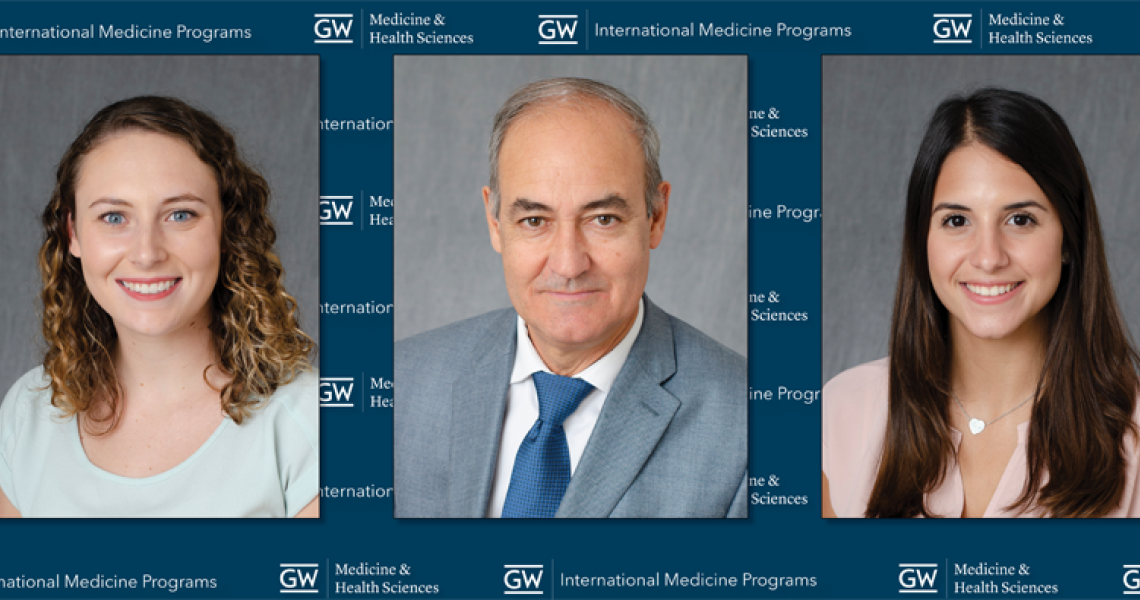The Virtual Research Training Program (VRTP) on “Precision Medicine Principles and Practice” is a four-week program available to George Washington University (GW) School of Medicine and Health Sciences (SMHS) students at the clinical level (MSIII and MSIV). The program provides virtual training on precision medicine research procedures using health care analytics, clinical bioinformatics, and algorithmic analyses that support artificial intelligence. Molecular profiling and clinical analytics, two essential components of precision medicine practice, are also given special attention in the program.
The first half of the program provides an overview of the principles of precision medicine and precision medicine’s recent development and clinical implementation. The second half is devoted to precision medicine practice utilizing interactive simulation. Students develop research activities with the support of specialized clinical research mentors from GW and outside institutions, including the National Institutes of Health (NIH) and Valencia General Hospital in Valencia, Spain.
The four-week course, which will be held in February 2021, evolved from an eight-week online summer research program, designed for first-year GW medical students during summer of 2020. The program was modified to a virtual format following the cancellation of in-person programs in Valencia, Spain due to the COVID-19 pandemic. Lauren Anderson and Kristin Torroella participated in the eight-week program.
Anderson was excited to learn how to use the statistical analytics applications R and SPSS because of the benefits associated with having this knowledge. “Both of these programs are used a lot by many different doctors and researchers to perform statistics for their studies,” she said. “Learning how to run my own statistics will be an incredibly useful skill, and hopefully help me in any future research projects I do.”
Throughout the eight-week program, Torroella was able to develop and test new skills through a variety of activities. “We learned about bioinformatics and how to code research from a database, analyze survival curves, and create Kaplan-Meier plots,” she said. “Throughout my time working remotely, I analyzed large data sets and coded data sequences.” The VRTP on precision medicine, she added, offers an excellent introduction to this promising field for any medical student interested in exploring the variety of opportunities precision medicine offers to future physicians.
Both programs are led by Fernando Vidal-Vanaclocha, MD, PhD, research professor of biochemistry and molecular medicine and research director for the Office of International Medicine Programs (IMP). Vidal-Vanaclocha brings 30 years of translational research experience in cancer metastasis and cancer microenvironment to the program, as well as serving as a founding scientific director of several translational research centers and biotech companies.
Precision medicine concepts and methods are increasingly being integrated into medical curricula. Vidal-Vanaclocha believes precision medicine serves an important role in shaping the future of medicine, since “clinical sciences are now using targeted therapies, molecular biomarkers, and AI-algorithms for the diagnosis and treatment, response prediction, and monitoring.”
The VRTP on precision medicine is a unique opportunity for medical students to receive basic knowledge of precision medicine, prepare for their roles as physicians, and adapt to changes within the field of medicine.
Medical students interested in the four-week VRTP scheduled for February 2021 or learning more about eight-week summer opportunities related to the VRTP should email Genna McKenna at gmckenna94 [at] gwu [dot] edu (gmckenna94[at]gwu[dot]edu).
